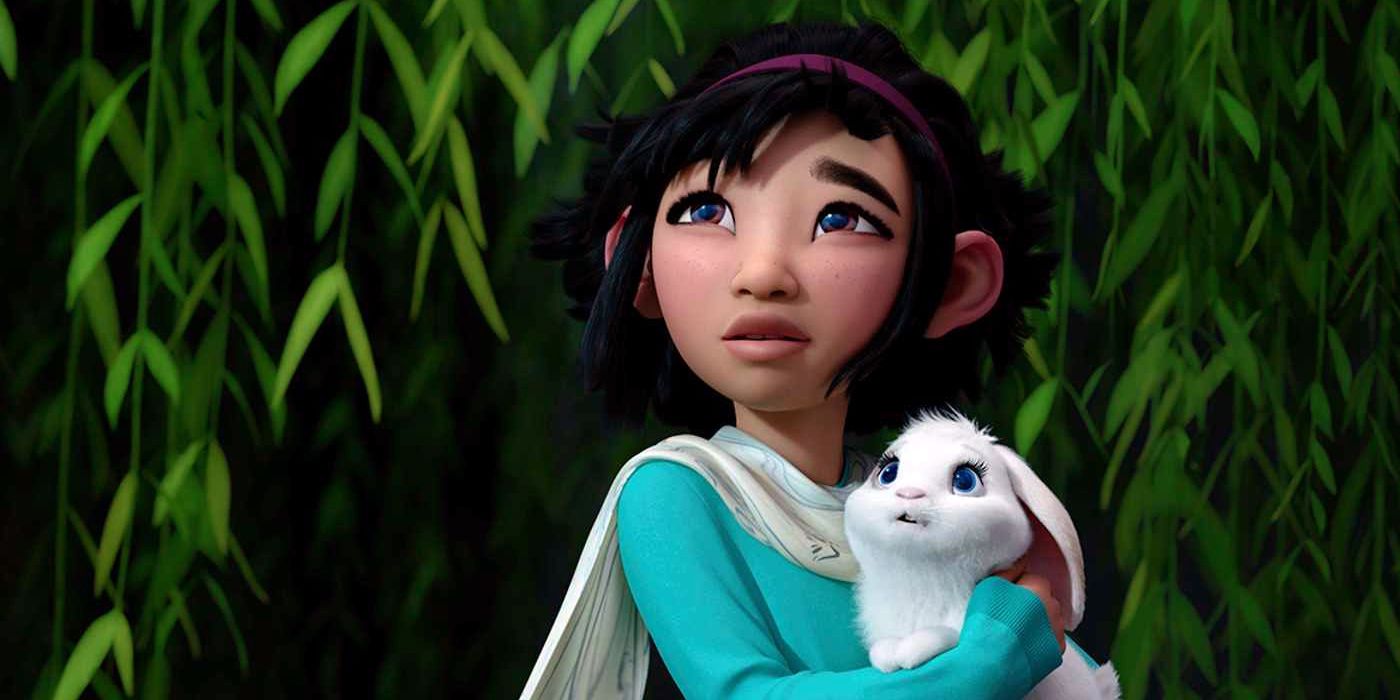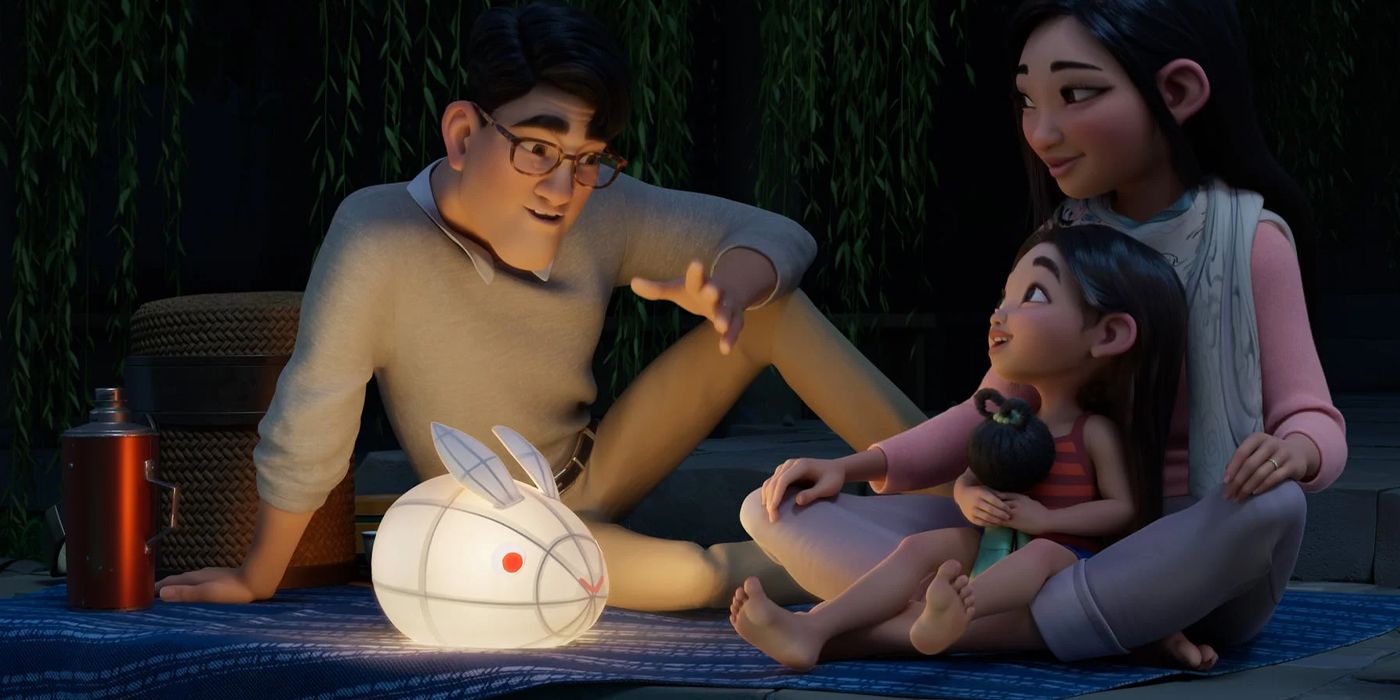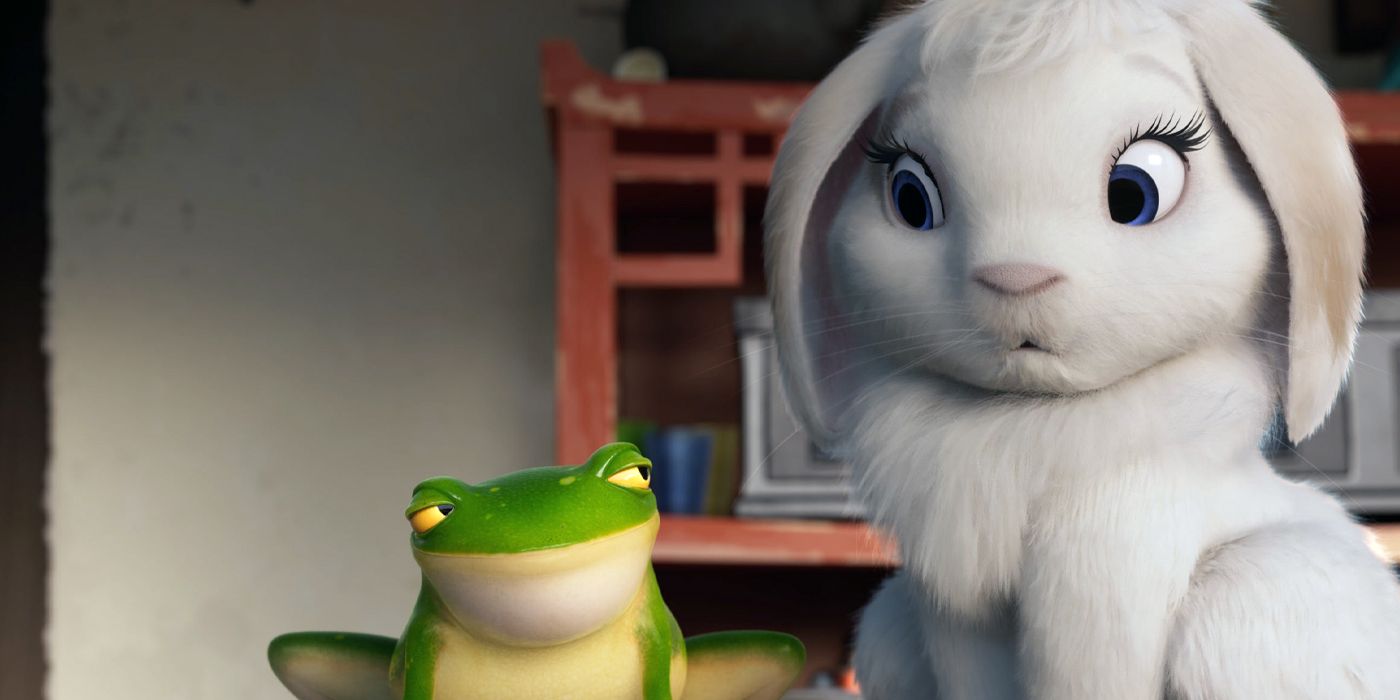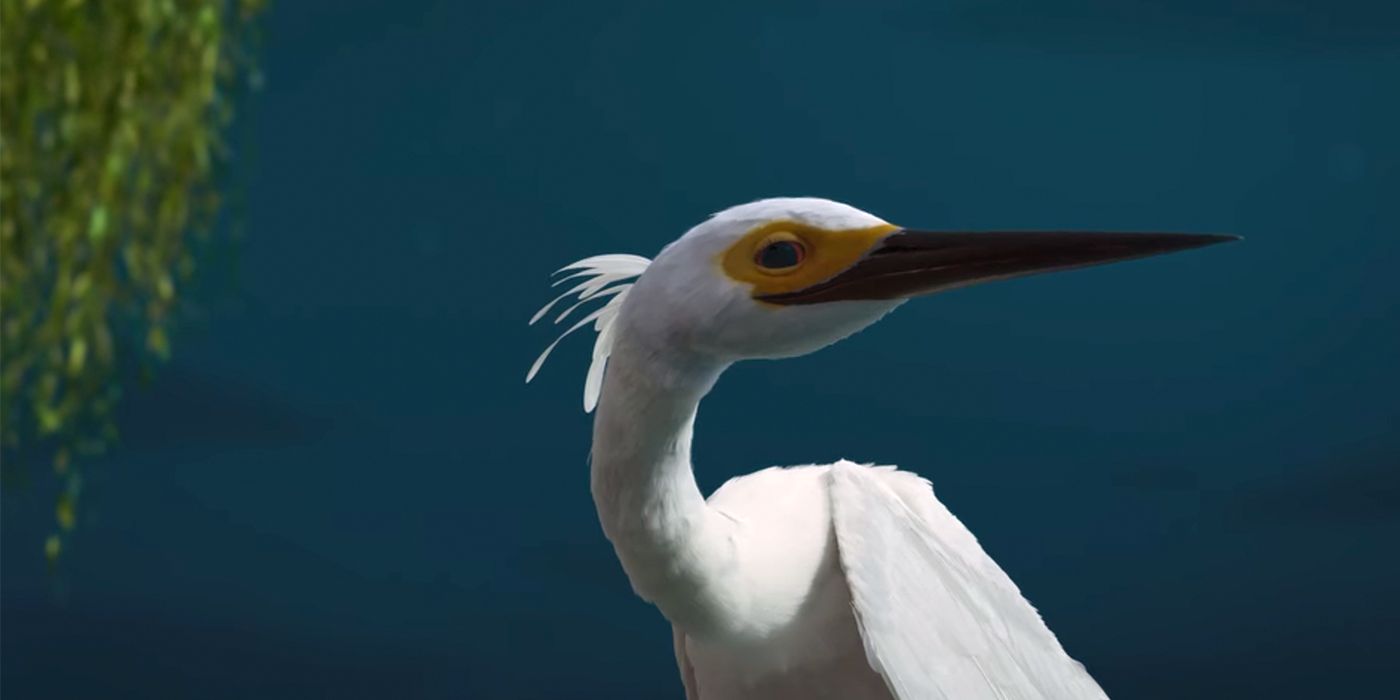
In Over the Moon, each animal that appears represents a different symbolic value in Chinese culture. The film has been strongly praised for its cultural authenticity in portraying the Mid-Autumn Festival, one of the most important holidays in China, and its inclusion of animals has similarly been treated with care. From Fei Fei's rabbit companion, Bungee, to the horde of giant flying toads on Lunaria, every animal has a deeper, more significant meaning behind their role. In a movie about moving past grief and learning to let go of the past, the symbolic value of these animals is specifically tailored to shed light on specific themes in Fei Fei's story.
Over the Moon follows 12-year-old Fei Fei during the Mid-Autumn Festival as she struggles to cope with the loss of her mother. When her father reveals his plans to remarry, Fei Fei embarks on a mission to prove that love never fades away. Using makeshift parts from Ali Baba and the power of electromagnetic force, the young engineer soon manages to build her own rocket to the Moon. Once there, she meets the legendary Moon goddess, Chang'e, who has created an entire Moon-based society called Lunaria. Fei Fei soon sets off on another quest: find the mysterious gift that Chang'e seems to think she has, or return to home to Earth without any proof of the goddess's existence.
Much like how Pixar's Coco (which has been called one of the best animated movies of the decade) celebrates the Day of the Dead, Over the Moon leans heavily on the mythos surrounding its featured holiday, the Mid-Autumn Festival. The festival celebrates the legend of Chang'e, which recounts the tale of a young woman waiting on the Moon for all eternity to be reunited with her lover. The myth emphasizes longevity, immortality, and togetherness; each animal adds another layer of nuance to these values. Here's every animal that's featured in Over the Moon and what their appearance represents.

In Over the Moon, Fei Fei brings her pet rabbit, Bungee, with her on the trip, but her pet opts to stay behind when Fei Fei returns home — in order to stay with Jade Rabbit on the moon. Bungee and Jade Rabbit are more than just a B-plot romance: they're essential characters in any Chinese story about the Moon. According to Chinese legend, when Chang'e flew up to the Moon thousands of years ago, she only managed to find one companion to keep her company: Jade Rabbit. This why the Chinese saying goes that there's a rabbit on the Moon instead of a man. It's this level of cultural depth and attention to detail that makes Over the Moon one of the best films on Netflix.
In Chinese culture, rabbits represent luck, purity, and regeneration. This is likely why Fei Fei is gifted Bungee when her mother becomes ill: it's her parents way of showing her that even when some things are lost, there will always be new life waiting ahead of her. It's also part of the reason that Fei Fei allows Bungee, who's fallen in love with Jade Rabbit, to stay on the Moon. Not only is it the best-suited home for her as a rabbit, it's also represents a full circle moment for Fei Fei. By allowing Bungee to start a new chapter of her life on the Moon, Fei Fei is in turn letting herself start her own new chapter. She is learning how to move on and let go. Thus, the cycle of new beginnings continues on.

Much how like Coco's directors were excited to celebrate Mexican culture, it seems that Over the Moon's team was also thrilled to share this little-known part of Chinese culture: the worshipping of frogs. The frogs that give Gobi and Fei Fei a ride back to the palace in Lunaria are more than just a convenient deus ex machina: they also represent lunar yin, which embodies dark, passive, and internal energy. This explains why an entire horde of them would be living up on the Moon. Like the rabbits in the movie, these frogs feel at most home in a lunar paradise.
Moreover, frogs are also symbolic of good fortune, frivolity, and healing. The fact that Fei Fei's step-brother, Chin, has a constant animal companion in his pet frog, Croak, shows that Over the Moon seized the opportunity for the sort of genuine Chinese cultural collaboration that Mulan missed out on. Chin is not only a major source of light-hearted humor throughout the movie, he's also the new person who Fei Fei decides to love and cherish as part of her family. This shows Fei Fei taking a major step towards healing from the loss of her mother by allowing herself to love somebody new.

Cranes make two major appearances in Over the Moon: one at the beginning of the movie and one at the end. Fei Fei's entire mission to the Moon is inspired by the moment she sees a white crane fly off into the night sky. Since cranes are symbols of wisdom, it makes even more sense that this particular animal would influence her idea to engineer a rocket ship against all odds. This attention to detail is likely what has helped Over the Moon win the praise of China's critics who hated the Mulan remake.
Fei Fei encounters a crane again at the end of the movie, which takes place during the next year's Mid-Autumn Festival. Cranes also symbolize longevity and immortality, so there's a strong possibility that this particular crane could represent the spirit of Fei Fei's mother living on. The crane appears to look directly at Fei Fei and even smiles at her before flying off into the night. It then joins an entire flock of other cranes, representing the idea that the spirits of those loved ones still continue on, even after they have passed away.
The animal symbolism sprinkled throughout Over the Moon shows more nuance than any average animated movie, where cuddly companions might only serve as a cute distraction for younger viewers. With a serious attention to detail and dedication to authenticity, Over the Moon has the makings of one of the strongest culturally-inspired animated movies to date.
from ScreenRant - Feed https://ift.tt/3kiwxPa


0 Comments